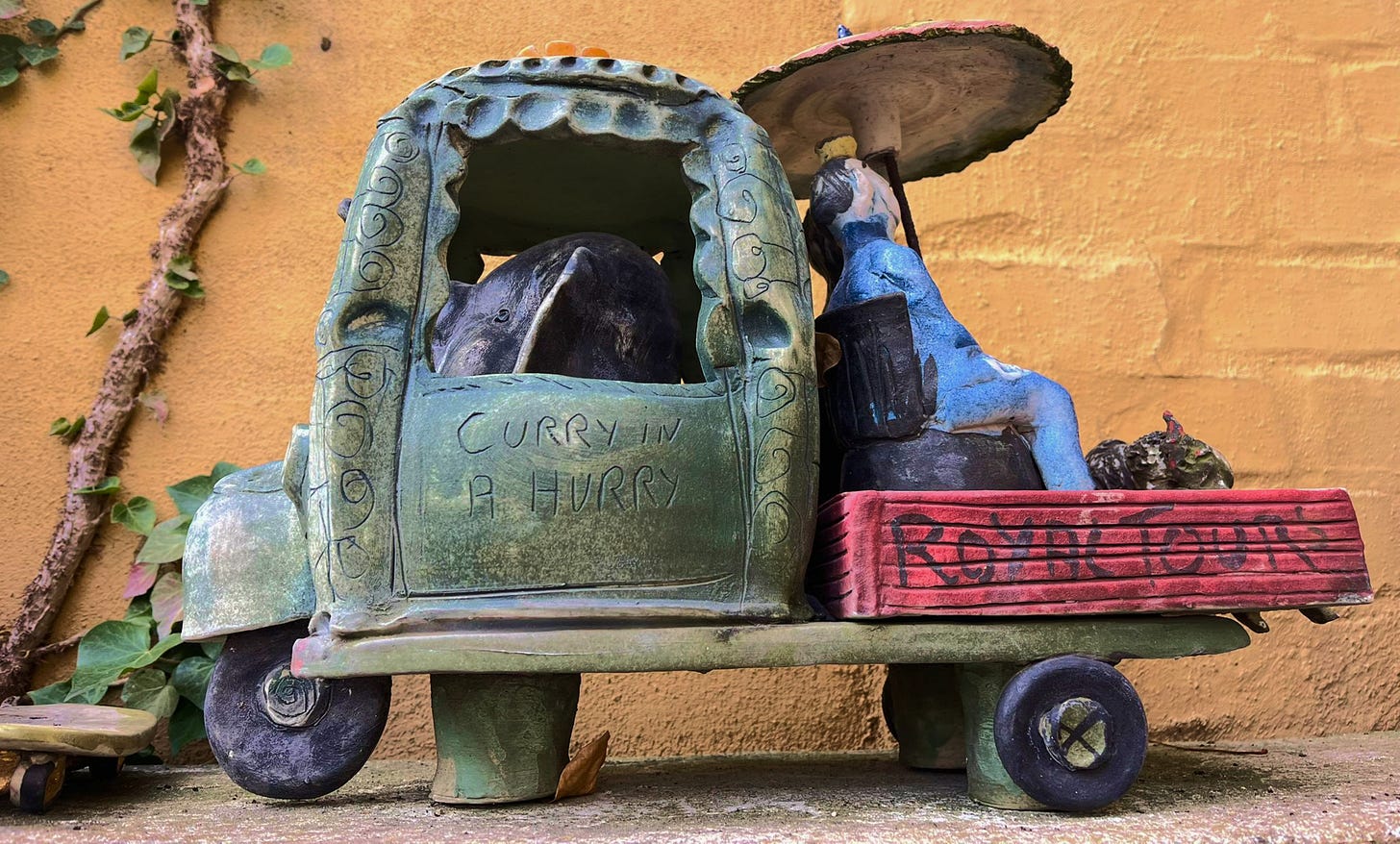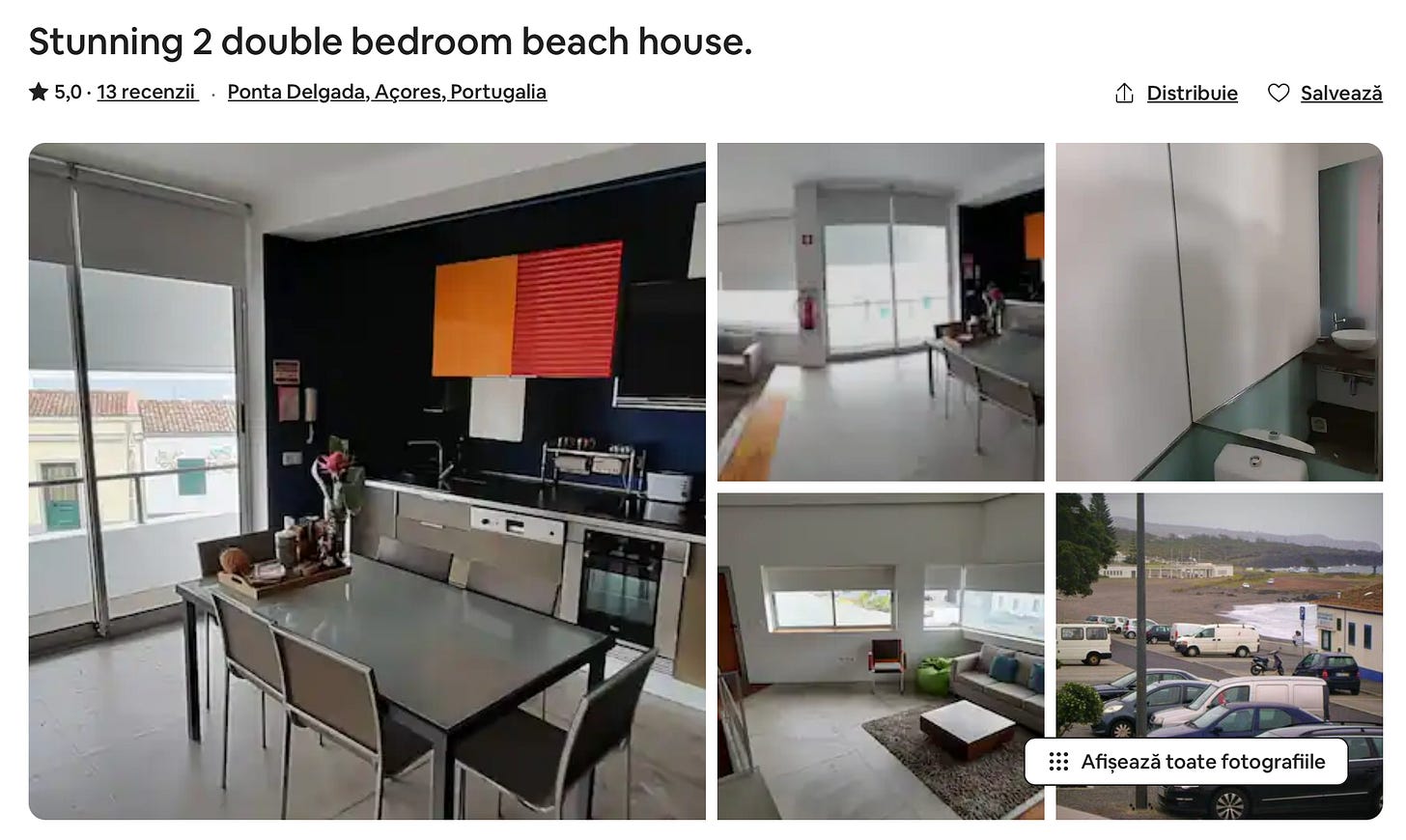Three lessons I've learned after three years of traveling full time
Traveling, habits and personal growth
Hi, fellow nomad 👋🏻 ! If you enjoy our content, don’t forget to subscribe and let your friends know about it. I appreciate your support!
Traveling can be exhausting, involving constant changes in the environment, people, and places, especially for long-term travelers. It's like you’re an artist going on a tour without the evening performances. Waking up in a new place without much context, knowing you'll move again in a month or two, and reliving this story repeatedly can be overwhelming.
So, how can you stay grounded amidst uncertainty and continue to thrive personally and professionally?
Leave behind anything that won't serve you.
Long-term travel anchors you to the essentials in a world where you can acquire nearly anything as long as you can afford it. Embracing this concept simplifies life and eliminates many choices that consume valuable time. Less is more. Starting with clothing and delving deeper into devices and other daily-use items, which might be consumerism products rather than personal growth tools. Reflect on how often you truly use these items and the purpose they serve. The decision-making process has no strict rules, but when done right, it should feel like unwrapping a gift, gradually revealing only the core.
Clutter in your life often leads to anxiety and wasted time making non-essential decisions.
Excessive choices create psychological distress, particularly when combined with feelings of regret, status concerns, adaptation, social comparison, and, perhaps most significantly, the pursuit of having the absolute best in everything—to maximize.
Schwartz, Barry. The Paradox of Choice (p. 221). HarperCollins. Kindle Edition.
You might wonder how this relates to traveling.
Becoming a traveler and adopting a nomadic lifestyle can be a beautiful experience that frees you to focus on inner growth. Embarking on this journey reveals you're limited in the items you can carry, drawing you closer to your core almost imperceptibly. While you can still pack three checked suitcases for a month abroad, practicing the art of reduction might help you realize that you don't require fancy clothes or advanced gadgets to partake in certain experiences—being present is enough.
This was a tough lesson for me, as I used to buy items that lost their significance within a week. Traveling with limited space compelled me to streamline my life, focusing only on essentials and prioritizing practical, durable items over those that are merely aesthetically pleasing.
Don’t put your habits on snooze.
What are the daily activities that bring you joy?
Consider the simple pleasures like sipping your morning coffee, journaling, or taking a leisurely stroll.
There is much to discuss about habits and how they truly benefit us. For a traveler, habits serve as a compass, guiding you through challenging times. The positive aspect of travel involves the thrill and satisfaction of exploring new destinations, trying novel experiences, and expanding your horizons. On the flip side, traveling can also amplify personal issues from your background. For instance, if you're prone to anxiety or easily stressed in unfamiliar situations, travel might intensify these feelings. Therefore, having a toolbox with one or two meaningful habits can anchor you, regardless of how turbulent the circumstances.
"All our life, so far as it has definite form, is but a mass of habits—practical, emotional, and intellectual—systematically organized for our weal or woe, and bearing us irresistibly toward our destiny, whatever the latter may be." - William James
Charles Duhigg, The Power of Habit: Why We Do What We Do in Life and Business
I never truly appreciated habits until I embarked on full-time travel. From daily runs or walks to the simple act of savoring morning tea, these small routines ground me and keep me afloat, regardless of the multitude of environments I encounter. When I began my journey, my understanding of habits was limited, as was my knowledge of what could provide me with consistency.
As the journey of self-discovery unfolded and I became more present in my own life, I realized there were practices that contributed to my well-being and equilibrium, which I needed to pay heed to. It was undoubtedly a trial-and-error process, and clarity didn't emerge until several months had passed. However, one certainty remained: I needed this consistency to stay engaged in my personal life, projects, and work.
While I have cultivated these habits, I remain open to adjusting and adapting to the realities of each new country.
Let's take running as an example.
Since the year began, I've explored a multitude of running trails, ranging from rugged paths with steep inclines and declines to long stretches of road flanked by sunlit fields to rainy routes featuring concrete and gravel.
I alter my running environment each month due to location changes; sometimes, adaptation proves challenging. Striving to maintain the same level of performance I achieved on different trails in entirely distinct countries can be disheartening. Initially, quitting for a week or even more seemed like the easiest option on many occasions. However, I've recently come to understand that whether I run 1 km, 5 km, or 10 km, it's all right as long as I continue.
The essence of the habit lies in stepping outside every day and doing something for my well-being. Consistency remains the linchpin whether walking, running, or engaging in any other outdoor pursuit.
Your environment isn't randomly chosen.
"If the ability to choose enables you to get a better car, house, job, vacation, or coffeemaker, but the process of choice makes you feel worse about what you’ve chosen, you really haven’t gained anything from the opportunity to choose."
Schwartz, Barry. The Paradox of Choice (p. 222). HarperCollins. Kindle Edition.
The environment holds a pivotal role in shaping your experiences as a full-time traveler. When discussing the environment, I often refer to accommodations and neighborhoods—influential factors in your overall journey.
I've addressed this topic several times in our newsletter, but for me, it remains a profoundly personal concern. Upon embarking on this nomadic lifestyle, I was certain about one thing: I didn't want to play a guessing game when selecting accommodations and places to stay.
If you're like me—a remote worker who travels full-time or aspires to—you'll understand that even amid your travels, you dedicate a substantial chunk of your time within the confines of your chosen accommodation, effectively working from your "home away from home." Hence, the environment becomes paramount. Whether in a small place where your thoughts bounce around or in a fancy home surrounded by city noise and constant car honks, these surroundings deeply shape how you feel and enjoy your time.
In my case, the quest for my next accommodation is akin to house hunting—it's a meticulous process, subject to a checklist of criteria before I deem it suitable. This might entail slightly steeper costs or perhaps some negotiable criteria. However, a lesson I've embraced is that even in the realm of full-time travel, your personal well-being shouldn't be compromised.
Discovering that sense of "home" in every corner of the globe holds immense value for a traveler. Though it's not solely about the accommodations you select or the country you're nestled in. Over time, you realize that the concept extends beyond mere physicality. To truly flourish, you need surroundings that nurture your journey of growth rather than acting as stumbling blocks.
Crafting your environment isn't an exact science, and there's no universal formula to dictate the criteria you should apply when seeking your next destination. Nonetheless, defining your personal benchmarks can guide you toward aligning with your genuine needs better

With all that being said, I believe that traveling has been a consistent source of learning for me over the past few years. These three lessons, in my opinion, can be readily applied in any situation—whether you're currently on a journey, aspiring to travel, or simply navigating your everyday life. With that in mind, I'm eager to discover more about your insights as fellow travelers. Please don't hesitate to share your thoughts in a comment, detailing some of the lessons you've gained through your travels.
I'm not sure if you know how much prices have gone up in Madeira or the Azores in recent years, but I can confirm the reality. These places rank among the most stunning spots I've ever visited in Europe, and some of the scenery there appears almost unreal.
These days, it's become quite challenging to find accommodation for less than 1500 Euros per month in either of these locations.
November happens to be a quieter time for both islands, so I thought it would be a fantastic idea to provide some options in this newsletter. However, please keep in mind that a crucial rule when it comes to purchasing accommodation in either of these two places is that you must secure it well in advance; otherwise, you risk missing out due to the limited supply and high demand for affordable houses.
In addition to Portuguese listings, I've also included some options for September in Izmir, one of the lovely cities that continues to embrace summer beyond August.
Nomad Listing's recommendations:
Don't forget; if you're interested in understanding the criteria I use to create these recommendations, you can check them out here.
💌 Don’t forget! If you enjoyed our newsletter, please subscribe and share it with a friend! We're here to help you find the perfect long-stay accommodations and make your travel dreams come true.🏡
If you have specific destinations or are curious about certain topics, just let us know! We're happy to consider them in our newsletter and provide tips and tricks for slow traveling. 🗺️✈️
Remember, our goal is to ensure that you find your perfect long-term accommodation without additional hassle.
Stay tuned for exciting updates, travel inspiration, and helpful information in our upcoming newsletters.
Don’t forget this newsletter is a reader-supported publication. The best way to support this is to share this newsletter.
See you next time, fellow nomad! 🤗










